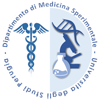PhD Programme in Systems biology in immune and infectious diseases
Coordinator: Prof. Paolo Puccetti – e-mail: This email address is being protected from spambots. You need JavaScript enabled to view it.
Co-Coordinator: Prof.ssa Roberta Spaccapelo – e-mail: This email address is being protected from spambots. You need JavaScript enabled to view it.
Department of Experimental Medicine
Infectious diseases are still the major cause of mortality and morbidity throughout the world and their occurrence indicates a failure of the immune system. However, our very existence indicates that the immune system has the potential capacity to cope successfully with these diseases. We need to better understand the fundamental rules that govern microbial pathogenesis, how the immune system usually controls infections, the microbial strategies that occasionally lead to escape from immune control and what happens when the immune system fails and turns against itself.
Ultimately, our ability to tackle these problems depends on attracting the next generation of scientists and providing them with the knowledge and technical skills that will allow them to study infection and immunity in innovative, exciting and productive ways. The aim of the PhD Programme is to train and motivate this new generation of scientists to tackle these problems.
The Department of Experimental Medicine’s PhD course focuses on the biological, immunological, epidemiological, and ecological aspects of viral, bacterial, and protozoan diseases in animals and humans and on the vectors that transmit some of these infectious agents. Research carried out at the department emphasizes basic pathogenic mechanisms that may lead to better diagnostic tools, the development of vaccines and other interventions for the prevention and control of infection and disease, and the identification of new targets for antiviral and antiparasitic drugs.
Members of the department adopt a multidisciplinary approach that includes immunology, microbiology, molecular biology, biochemistry, physiology, genomics, genetics, pathology, pharmacology and public health also through the countless national and international collaborations activated by the PhD members. Infectious and immune-mediated diseases currently under study include malaria, fungal infection (Candida e Aspergillus), viral infection (coronavirus), diabetes, obesity, cancer, haemophilia, cystic fibrosis and autoimmune diseases. Further immunologic studies focus on the genetic regulation of immune response, the interplay between the innate immune system and intestinal microbial communities, the function and regulation of T-cell-derived cytokines and cytokines involved in the regulation of inflammation.
The doctorate is divided into three different but interconnected curricula:
Genomics and genetics of host-pathogen agent relationship: introduces students to recent advances in the biology of infectious diseases and provides background for conducting research on said diseases. The Programme emphasizes molecular biology, immunology, cell biology, genetics and the epidemiology of parasites. Specifically, given the expertise of several of the Doctorate supervisors in the field, great attention is paid to the study of fungi, bacteria, viral and etiologic agents of malaria.
Translational immunometabolism, immunogenetics and immunology: focuses on the interface between immune and metabolic responses in immune diseases as possible important targets for novel therapies. More specifically, given the expertise of several of the Doctorate supervisors in the field, great attention is paid to immunosuppressive enzymes catabolizing amino acids. Moreover, these studies are implemented by understanding the complex trait of immunometabolic genes in infectious and immune diseases.
Ethics, Law and Science: introduces students to a comparative study of technologies and biolaw with regard to ethical issues. In particular, scientific issues will be analysed in relationship to the rules of domestic and supranational law governing them, to protect scientific research and the human person. Furthermore, an in-depth analysis will be dedicated to the management of sensitive data in the research and treatment of diseases, also in light of the new EU Regulation 2016/679 which came into force on 25-5-2018.
LINK UTILI

